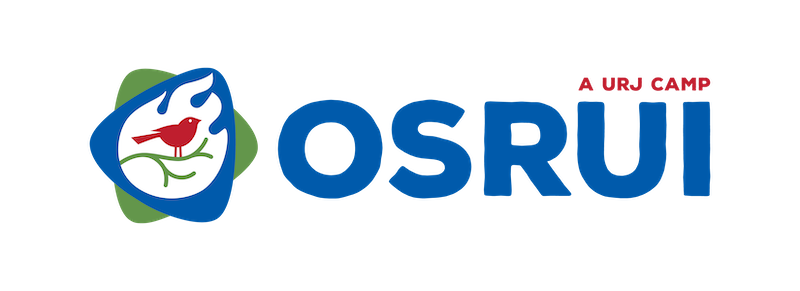
Hi There! My name is Ben. I’m one of the Assistant Directors on OSRUI. I think we all know that camp is a pretty amazing place. It has something for everyone: sports, art, learning, friends, the list goes on and on. There’s a lot of awesome things happening at OSRUI this summer and I am so excited to tell you all about them. So join me as we go on a tour of camp with some of the people who make it possible as they share how they make camp magic happen every single day!
Today, I am so happy to introduce you to not one, but TWO wonderful people: Farmer Jonah and Tal, OSRUI’s Roshei Teva. They’re here to tell us about OSRUI’s Gan (Garden) and the Teva program. Read below to hear what they have to say:

BEN: Who are you and what do you do at camp?
JONAH: Hey there! I’m Farmer Jonah, one of our Roshei Teva and the Amir Farmer at camp this summer. I run the gan and the refet (farm), teaching our lovely chanichim (campers) about Jewish agriculture and what it means to farm in Judaism.
TAL: Shalom shalom! I’m Tal, also one of OSRUI’s Roshei Teva, and I teach what I call “the wild side of plants.” I create and share programming about the nature all around camp and how we can interact with it.
BEN: Can you explain what the Teva program is like at OSRUI? What do the campers do when they join you?
JONAH: For the younger chanichim, they visit us by bunk. We introduce them to some basic concepts in Jewish farming like Peah, leaving the corners of our fields for those who cannot farm, and Shmita, which is like Shabbat for the land. Then, we introduce them to our goats and sheep in the refet. For our older chanichim, we dive deep into our relationship with the world around us. We meet our plant and animal friends here at OSRUI and teach our campers how to be in conversation with the wilderness and intentional about cultivating their relationship with nature.
BEN: Why is learning about nature important for kids? Does it really teach any life skills?
TAL: By interacting with creatures, organisms, and beings who can’t speak or respond, we learn to be more compassionate. We learn to listen deeply and to hear our guts and our hearts when they reveal nature’s whispers. Our campers learn to look closely at the world, how to really stop and be where they are, how to work their imaginations, how to ask questions that don’t have answers, and how to interact with each other and the world around them with intention.
BEN: There must be a lot of different plants around here, both that we grow and that grow wild. What is plant life like at OSRUI?
JONAH: In our gan, we have all kinds of amazing plants! Our shmita plot is home to milkweed and several native pollinators, and so is our pollinator garden. Our salsa and pizza plots have tomatoes, peppers, and basil. We also have an herb plot with all my favorites like rosemary, lavender, and of course parsley.
TAL: We teach campers how to identify and converse with lots of wild plants. We have friends all over camp waiting to be met! We’ve got plantain, milkweed, yarrow, clover, elderberry, mints of all kinds, lemon balm, dandelion, mulberry and so much more! Most importantly we teach our campers how to name and identify plants they’ve met through their own observations!
BEN: Farmer Jonah, You introduced yourself as the Amir farmer for the summer. What does that mean?
JONAH: The Amir Project was started by a group of friends who met at another Jewish camp! They understood the power that places like camp can have and wanted to harness that ability to teach campers about food, social justice, and sustainability while building beautiful kehillot (communities). Every summer, the Amir project interviews a ton of young adults like me who care deeply about the environment and pairs us with partner camps around the country. Before camp started for the summer, I gathered with all of the farmers for an incredible training seminar (which happened right here at OSRUI this year!) to learn how to teach folks about farming and Judaism. I want to reconnect campers with Judaism rooted in the dirt and dispel the myth of Jews as a people with no connection to the land. My amazing mentor and the rest of the Amir staff support me throughout the summer to make that happen.
Wow! Thanks, Farmer Jonah and Tal, for sharing your insight and expertise with us about the inner workings of camp’s garden and its “wild side.” We thank you for everything that you do at camp and wish you the best summer ever. And for all of you reading this, thanks for checking out our blog, and come back next week as we feature more of the great parts of camp that make it the greatest place on Earth! See ya later!
